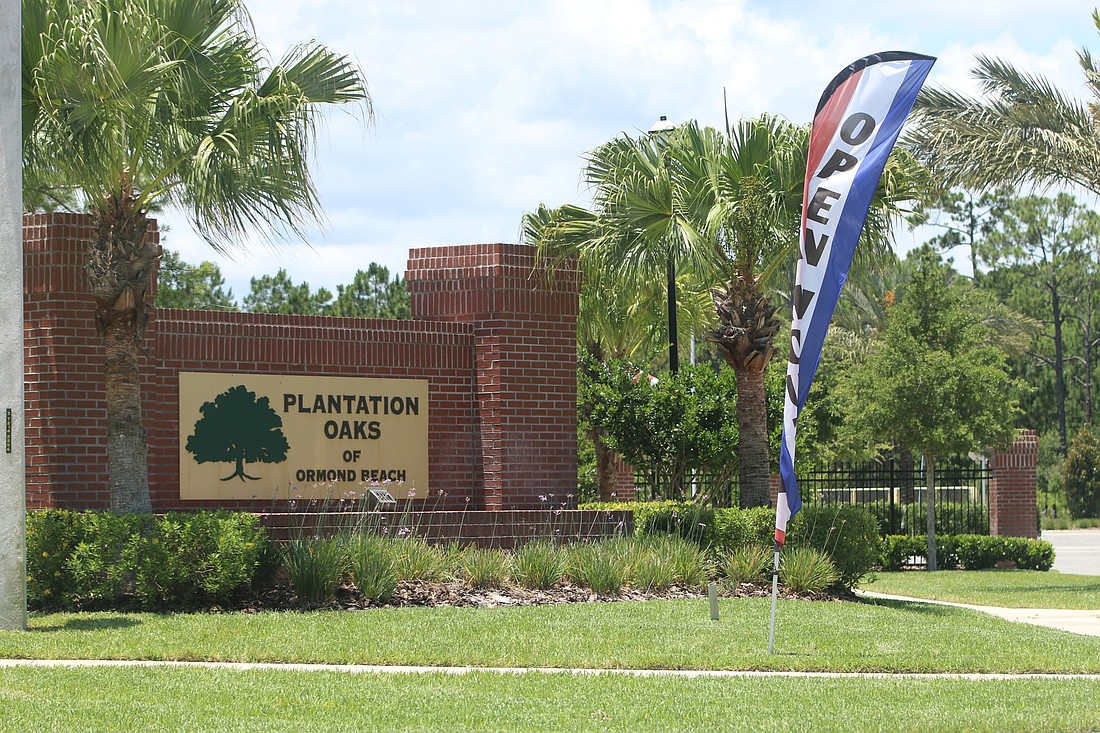- April 18, 2024
-
-
Loading

Loading

The age-restriction for Plantation Oaks of Ormond Beach may be dropped for the first phase of the development, despite citizen opposition, as the Planning Board unanimously recommended the amendment at its meeting on June 11, the first since the beginning of the COVID-19 pandemic.
The amendment to the city's zoning map consisted of three parts, two of which had to do with incorporating the county zoning and development order into the city since the land was annexed in October 2019. The third portion of the amendment seeks to delete the age-restriction that requires residents to be 55 years and older in phase 1 of the project. Phase two has already been built and would remain age-restricted. If it passes a City Commission vote, the next step of the process, all homes in phase 1 will be single-family dwellings with no manufactured or mobile homes allowed.
Plantation Oaks' development dates back to 1986, when the National Gardens Development of Regional Impact approved 3,930 residential units on 2,009 acres. The subdivision is located between U.S. 1 and Old Dixie Highway by the Ormond Scenic Loop and Trail. When Volusia County approved the project in 2002, the density was reduced to 1,577 residential units on 1,033 acres with a 100 foot buffer on Old Dixie Highway; that was increased to 175 feet in 2012 by the county. The developers, Parker Mynchenberg and Ronnie Bledsoe, signed an annexation agreement with the city in 2015, and the land was formally annexed four years later.
The amendment doesn't change any of these details. Planning Director Steven Spraker said that, even if the amendment was denied, the developers would still keep the development order from Volusia County. City Attorney Randy Hayes also confirmed this, saying the project itself couldn't be turned down since it was approved 18 years ago. The only thing the board had discretion to deny is the age-restriction, as the other two items were administrative in nature.
“The city’s land development regulations have to be consistent with that which was approved in the county," Hayes said. "You cannot take that away from the landowner.”
Still, about 20 signed up to speak against the project at the Planning Board meeting. One of them was Brandon Dodge, who said his biggest concern was that taking away the age-restriction would increase traffic, and in the same vein, increase the amount of vehicular accidents with wildlife.
“I think as locals, as an Ormond Beach native, I would hate to see the loop be destroyed any further," Dodge said. "We’ve already seen too much construction going on over there and as a motorcycle rider, I go through there often.
A petition on change.org, titled "Save the Ormond Beach Loop from Rezoning" was started by Natalie Pilipczak, who also spoke at the meeting. She said she couldn't bear seeing the loop destroyed. She asked the board table the item in favor of finding a way to buy the land from the developer. The petition has over 19,000 signatures as of Friday, June 12.
“If you table your votes today, we can work in collaboration with Volusia Forever and Florida Forever and private owner of the loop to preserve our beloved loop," she said.
Other residents' comments against the amendment included overcrowding local schools with more children, the increase of traffic and destruction of the loop. Mynchenberg addressed the comments, saying the School Board gave them a green light in terms of meeting school concurrency, and added that the development is preserving about 100 acres of wetlands. The development is not in a floodplain either, he said. Single-family homes also pay a higher tax rate than manufactured homes.
Mychenberg, who was involved in the creation of Halifax Plantation, said there were many people in the past that didn't want that specific subdivision. In the early 2000s when he was working on Plantation Oaks, many of the opposition came from people living in Halifax Plantation, he said.
“Nobody wanted it and now you go up to Halifax Plantation, you look at the street trees that we designed and I’m very proud of that subdivision," Mychenberg said.
After almost two hours of discussion, a few board members said they took offense at the accusations stated by some that they as the board didn't care about the city. Board member Lori Tolland said that, while she would have wanted to protect the land from ever being developed if she had been involved in 1986, that was no longer a possibility. Their job as a volunteer board is now to make sure development occurs in a way the city can handle, she said.
Board Chair Doug Thomas, who has been serving on the board for three decades, said that the unifying theme in what everyone said is that they loved the city. He's lived in Ormond since 1973 and seen a lot of change. Progress is going to happen, he said, and there have been people opposed to every development he's reviewed on the board.
“The decisions that we make, you may not like, but there were people sitting in your seats when you were moving here that didn’t want you moving here," Thomas said. "But yet, you’re here. Yet, I’m here.”